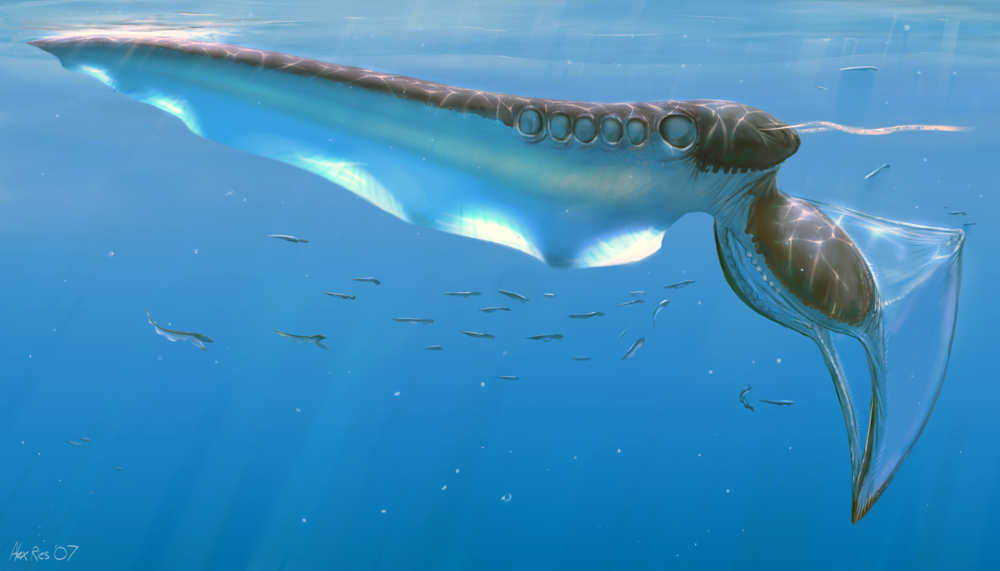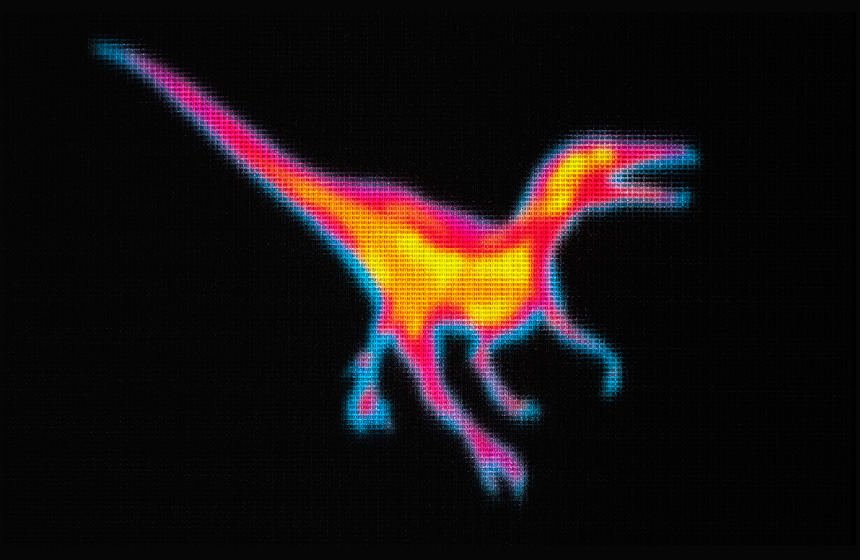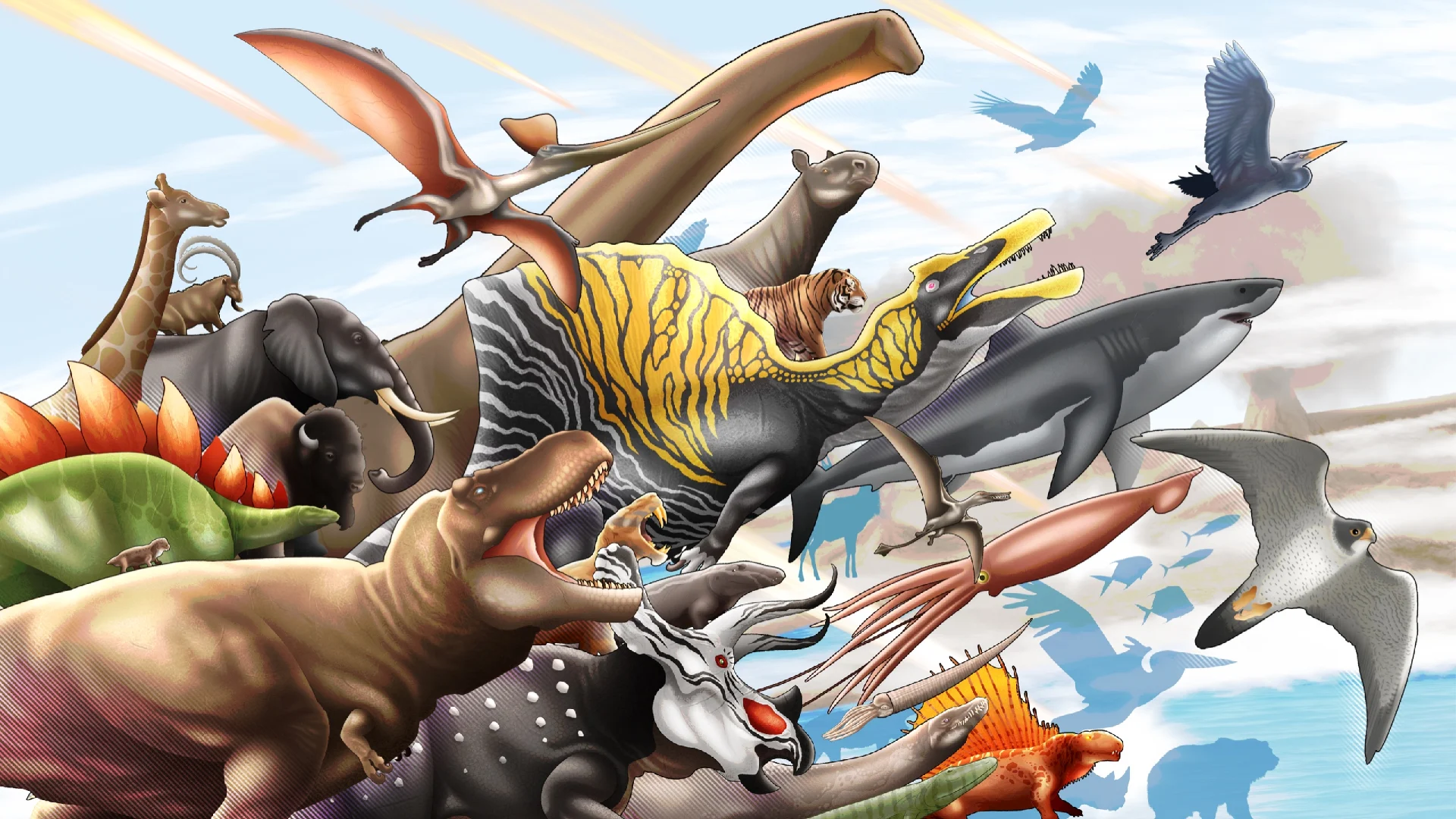|
|
Post by Ceratodromeus on Nov 5, 2016 3:58:27 GMT 5
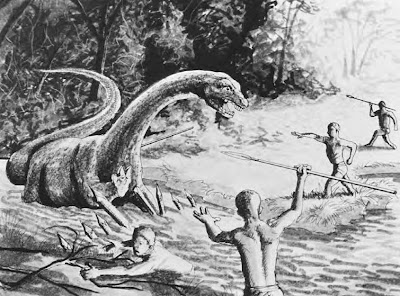 Description & Overview Description & Overview
"Mokèlé-mbèmbé (meaning "one who stops the flow of rivers"[citation needed] in the Lingala language) is a legendary water-dwelling creature of Congo River basin folklore, sometimes described as a living creature, sometimes as a spirit, and loosely analogous to the Loch Ness Monster in Western culture. It is claimed to be a sauropod by some cryptozoologists. Expiditions mounted in the hope of finding evidence of the Mokèlé-mbèmbé have failed, and the subject has been covered in a number of books and by a number of television documentaries. Accoskeptic Robert T. Carroll, "Reports of the Mokèlé-mbèmbé have been circulating for the past two hundred years, yet no one has photographed the creature or produced any physical evidence of its existence."The Mokèlé-mbèmbé and its associated folklore also appear in several works of fiction and popular culture. According to the traditions of the Congo River basin the Mokèlé-mbèmbé is a large territorial herbivore. It is said to dwell in Lake Tele and the surrounding area, with a preference for deep water, and with local folklore holding that its haunts of choice are river bends. Descriptions of the Mokèlé-mbèmbé vary. Some legends describe it as having an elephant-like body with a long neck and tail and a small head, a description which has been suggested to be similar in appearance to that of the extinct Sauropoda,while others describe it as more closely resembling elephants, rhinoceros, and other known animals. It is usually described as being gray-brown in color. Some traditions, such as those of Boha Village, describe it as a spirit rather than a flesh and blood creature. The BBC/Discovery Channel documentary Congo (2001) interviewed a number of tribe members who identified a photograph of a rhinoceros as being a Mokèlé-mbèmbé. Neither species of African rhinoceros is common in the Congo Basin, and the Mokèlé-mbèmbé may be a mixture of mythology and folk memory from a time when rhinoceros were found in the area."
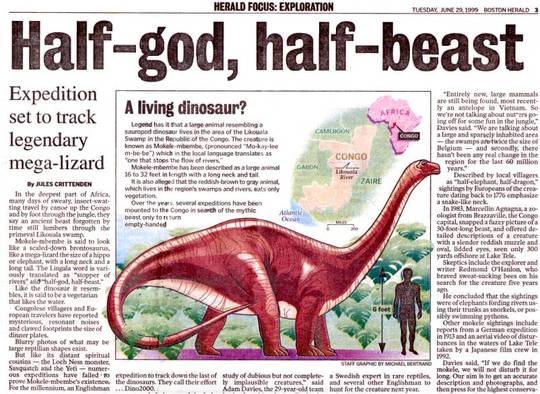 Some depictions 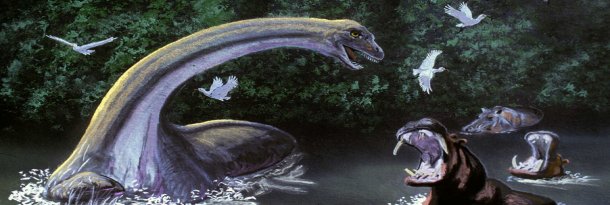  Alleged footprint made by the cryptid 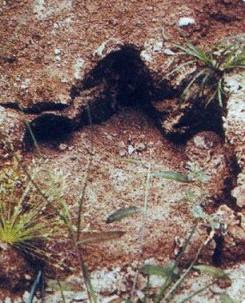 |
|
full
Junior Member
 
Posts: 104 
|
Post by full on Nov 21, 2016 20:20:10 GMT 5
No chance is this thing a sauropod.
|
|
|
|
Post by creature386 on Nov 21, 2016 23:40:21 GMT 5
One of Kent Hovind's "proofs" that evolution is false.
I'd say it's about as believable as Nessi.
|
|
|
|
Post by Infinity Blade on Nov 22, 2016 0:25:11 GMT 5
That alleged footprint doesn't even resemble a sauropod's.
|
|
smedz
Junior Member
 
Posts: 195 
|
Post by smedz on Sept 23, 2019 0:29:15 GMT 5
Africa, home to many of the world's most iconic animals. Like lions, cheetahs, gorillas, hyenas, okapi, well you get the idea. But along with all those, the dark continent has many fascinating cryptids. The most iconic being the Mokele-mbembe, which in lingala literally means "one who stops the flow of rivers". This animal is said by crytozoologists to be a living sauropod (even though this animal goes against what is currently known about sauropods). But it's fascinating nonetheless.
|
|
|
|
Post by creature386 on Jul 31, 2020 22:30:44 GMT 5
Aaand, Trey covered that one, too:
|
|
|
|
Post by kekistani on Aug 14, 2020 23:39:37 GMT 5
After having read Mackal's book I can say for sure Trey left out some stuff about the incident with the regional president-namely that the president had (Supposedly) concealed the truth from them because they didn't trust americans based on the image painted by the USSR of americans as greedy, untrustworthy, colonial capitalists*.* While the president may (and probably did) change his story about the Mokele to get aid from Mackal's group, it is he who stated he had not told the explorers the truth, because he found it hard to believe white men from the USA would come looking for an exotic animal and not to plunder resources. The above revelation does change things about the context. And we know that Mokele-Mbembe cannot mean "rainbow", and means something along the lines of "water snail" or "water slower" (As per the Lingala dictionary). Take of that what you will.
This does not make me change my mind about Mokele's existence (or rather its NON-existence) but it does change my perception of this specific part of the 1st Mackal expedition somewhat. |
|









